Winter Safety HVAC Tips
Understanding HVAC safety hazards is the first step in preventing them. Recognizing these common issues isn’t as easy as it might sound. Restricted airflow problems, for instance, frequently occur during the winter months. You and your family may notice that one room in your home is colder than others, but dismiss the issue as a draft. In reality, your heating vents may be blocked by furniture or clogged with debris. That debris could catch fire and cause serious damage to your home.
Frozen pipes are another important hazard to be aware of this time of year. As temperatures plummet, ice forms on pipes and coils. When this happens, pipes freeze and stop functioning altogether. If improperly installed or maintained, heat pump systems are especially at risk of becoming faulty.
Thankfully, you can prevent this by following our HVAC system safety tips below.
Perform a Furnace Inspection and Maintenance
Speaking of being proactive, it’s a good idea to schedule annual winter hvac maintenance services before the winter begins. HVAC preventive maintenance will go a long way to identify issues before they threaten the integrity of the entire system. While you could perform an inspection and change air filters yourself, many people opt to have our service professionals take care of all furnace maintenance.
While you might save some cash upfront, taking a DIY approach can lead to complications down the line. By hiring a professional, you’ll rest easy knowing your system is in good hands. We’ll take a comprehensive look at the condition of your HVAC system and make customized recommendations for your specific unit. Our Aire Serv Advantage Plan™ can keep serious issues from occurring and extend the lifespan of your system.
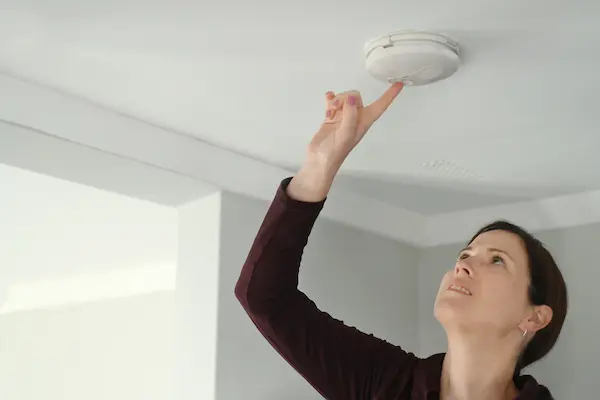
Test Your Smoke Alarms and Carbon Monoxide Detectors
When it comes to HVAC system safety tips, few are as important or as simple as this one. If you haven’t done so recently, it’s a great time of year to check your smoke alarms and carbon monoxide detectors. During the colder months, people tend to use appliances such as space heaters and wood stoves. As a result, the risk of house fires and carbon monoxide increases. Regardless of whether your family uses such appliances, check to ensure that your smoke alarms and carbon monoxide detectors are functioning properly. 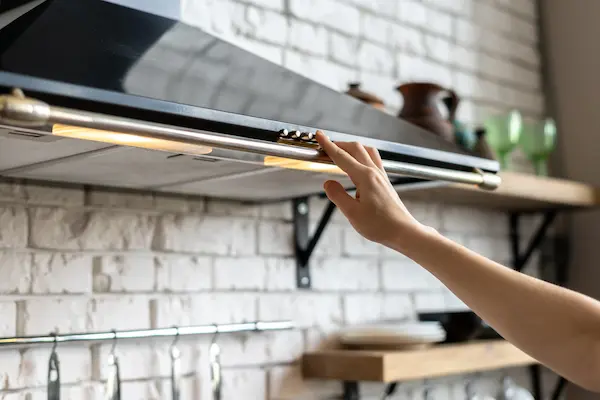
Use Your Range Hood Exhaust Fan When Cooking
Flipping on your exhaust fan will help remove smoke, grease, odors, and other pollutants that may have been released while you were cooking. This HVAC system safety tip will keep your home feeling and smelling fresh all season long. A qualified HVAC or indoor air quality professional can recommend many solutions to reduce odors and improve air quality in the kitchen and throughout the home.
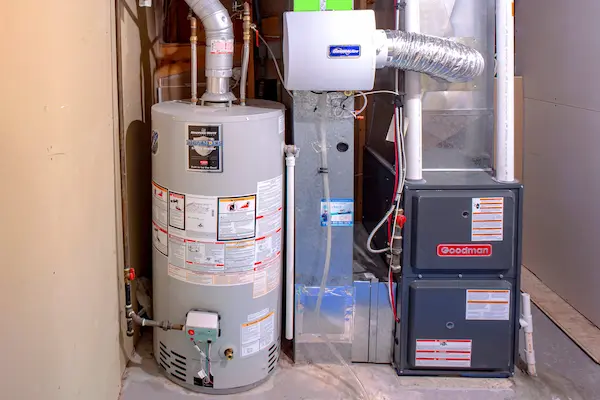
Keep Clutter Away From Furnaces, Water Heaters, and Fireplaces
While this winter safety HVAC tip might seem like common sense, many people mistakenly cover up their furnaces, water heaters, and fireplaces without even realizing they’re doing so. These appliances need “room to breathe,” so to speak. Even if you manage to avoid a fire, clutter will still contribute to improper ventilation and cause carbon monoxide to build up. When in doubt, give your appliances a wide berth.
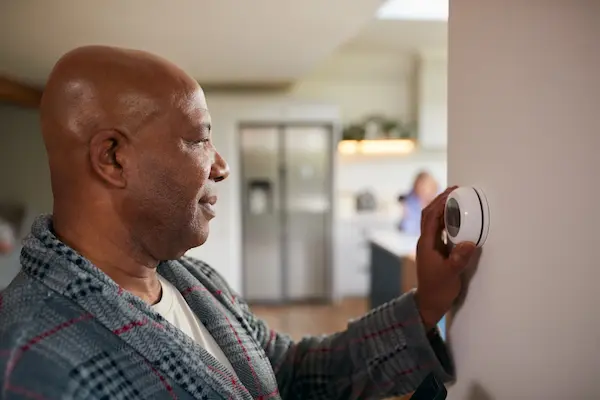
Don't Turn Down or Cover Your Thermostat
When you’re away from home, it’s tempting to drop your thermostat down to save on energy costs. While turning it down a few degrees isn’t a bad idea, going too low will cause pipes to burst.
You’ll also find it hard to bring the temperature back up quickly once you arrive home. Save money and energy by setting your thermostat no lower than 67 degrees in the winter. Consider investing in a programmable WIFI thermostat able to be adjusted remotely from a mobile device, set to adjust temperatures automatically during specified times of day or days of the week, and alert homeowners if specific problems arise with the heating and cooling equipment.
You should also avoid covering your thermostat. While it might not fit with your holiday décor, the thermostat needs to be unobstructed to do its job. If you don’t like the look of your thermostat, consider upgrading to a more aesthetically pleasing model. Aire Serv will even help you install it.
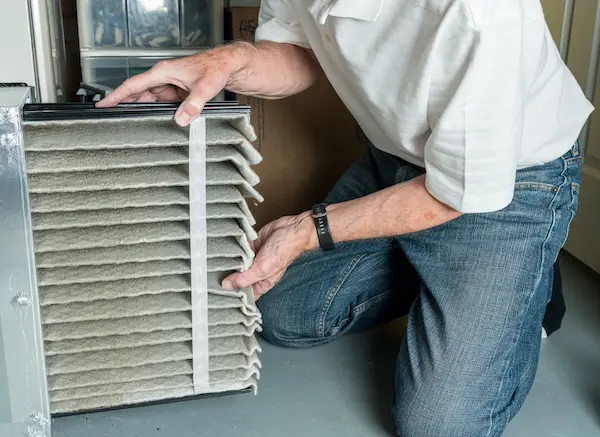
Change Your Air Filter
Did you know that experts recommend swapping your HVAC’s air filters out every 90 days? Following this HVAC safety tip will help ensure that no dust or debris is building up in your system. When air can flow freely through your unit, your system doesn’t need to work as hard to heat your home. This translates to lower energy bills and a fresher home. If your family struggles with asthma or allergies, you’ll definitely want to prioritize this task.
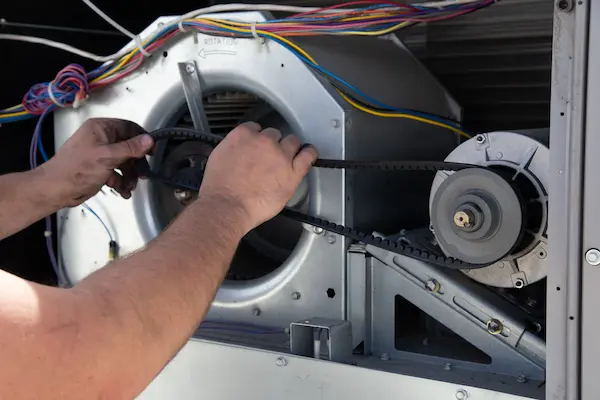
Schedule Regular HVAC Maintenance
Staying on top of maintenance tasks can be a challenge, especially during the holiday season. That’s why it’s a good idea to get onto a regular HVAC maintenance schedule. Routine visits from an HVAC professional can extend the lifetime of your system and provide you with serious peace of mind. Regular appointments can keep your HVAC unit functioning properly and minimize the odds of a heating emergency.
If you’re struggling to keep up with the demands of your system, call us for HVAC maintenance service. Aire Serv professionals will thoroughly inspect your system and take care of any recommended tasks. A regular HVAC maintenance plan helps to ensure your system runs smoothly when you need it.
Schedule your appointment with Aire Serv online. We’ll be happy to answer any questions you might have and set you up for a service appointment that aligns with your busy schedule.
 Click to call
Click to call


